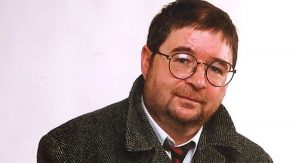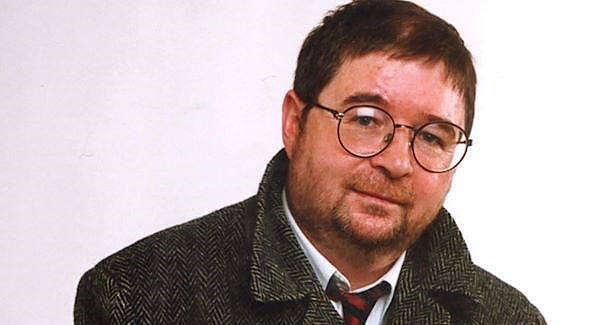[vc_row][vc_column][vc_column_text]

Martin O’Hagen (Photo: Sunday World)
An editor of the Sunday World newspaper has called for “justice to be served” as the 18th anniversary of the unsolved murder of journalist Martin O’Hagan approaches. Reporters at the Irish newspaper continue to receive regular threats from paramilitaries, he said.
Speaking to Index, Richard Sullivan, the northern editor at the Sunday World, said: “O’Hagan was dedicated to his craft as an investigative journalist and he paid the heaviest of prices for trying to make his homeland a better place”. He expressed frustration that the investigation into O’Hagan’s murder has come to nothing; prosecutors dropped the case in January 2013 citing a risk of basing it on unsubstantiated evidence.
“We are in despair that those responsible for Martin’s death remain at large, but we will continue to keep his case in the public eye in the hope that one day justice will be served,” Sullivan said.
Meanwhile, staff at the Sunday World, the second largest selling newspaper in the Republic of Ireland and also on sale in Northern Ireland, continue to work under considerable pressure from paramilitary organisations. “It’s been 18 years since he was shot and killed; in that time Sunday World journalists continue to work under constant threat. As recently as January this year a journalist on this newspaper was given 48 hours to get out of the country or be killed. It is a sad indictment that in 2019 journalists working in a major UK city continue to have their lives placed under threat,” said Sullivan.
On 26 August 2019, the European/International Federation of Journalists and Index on Censorship filed an alert with the Council of Europe regarding the continued impunity for O’Hagan’s murder. The platform’s 2019 annual report, warned that “a climate of impunity has started to take hold in parts of Europe” and called for “the swift completion of a transparent and effective investigations and prosecutions leading to the punishment of all those found responsible.”
Eighteen years ago this month, O’Hagan was murdered in Lurgan, Northern Ireland. He was shot several times from a passing car while walking home from a pub with his wife on 28 September 2001. Although the Red Hand Defenders – a nom de guerre used by the Loyalist Volunteer Force – claimed responsibility for his murder, his killers have never been brought to justice. Until Lyra McKee’s death earlier this year, O’Hagan had been the only journalist to be killed in Northern Ireland.
O’Hagan was an investigative reporter with the Sunday World newspaper, specialising in stories about drug gangs and paramilitaries. He had repeatedly been threatened by both republican and loyalist paramilitaries as a result of his work. He had previously served five years in jail for gun running for the IRA.
In 1989, the Provisional IRA “invited” him to interview them, but instead abducted him and threatened him with torture and death. He was released with a warning after successfully convincing them that he had not worked as a police informer. After O’Hagan exposed LVF member Billy Wright as a sectarian assassin in 1992, Wright threatened O’Hagan and attempted to have him killed. O’Hagan left Northern Ireland on advice from the police, and only returned after the paramilitary ceasefires in 1995.
Paramilitary organisations have long targeted staff at the Sunday World. In 1984, one former journalist from the paper was seriously wounded when he was shot by the Ulster Volunteer Force. Another has repeatedly said he could have “wallpapered a room” with the 21 death threats that were passed on to him by police. In October 1992, two gunmen held staff at gunpoint before planting a bomb in the office doorway – journalists were forced to jump over the bomb as they fled. And in January 1999, the outlet’s Belfast offices were badly damaged in an arson attack.
Last year on the 17th anniversary of O’Hagan’s killing, the National Union of Journalists renewed their call on the Irish and British governments to commission an independent investigation into his murder. “Martin’s murder was a matter of international concern and the failure of the police to apprehend those who killed him is still of concern to all who care about human rights and the right of journalists to operate freely and without threat,” said NUJ Secretary, Séamus Dooley.[/vc_column_text][/vc_column][/vc_row][vc_row][vc_column][vc_basic_grid post_type=”post” max_items=”4″ element_width=”6″ grid_id=”vc_gid:1567701911745-37eade37-ad90-4″][/vc_column][/vc_row]






